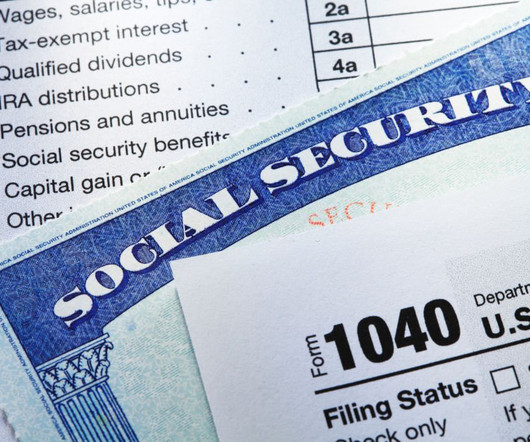House Bill Proposes to End Social Security Tax for Retirees
CPA Practice
FEBRUARY 12, 2024
By Katelyn Washington, Kiplinger Consumer News Service (TNS) A proposal to end federal tax on Social Security retirement benefits would provide relief for retirees as early as next year. That’s because, as the bill is worded, federal taxes on Social Security income would be eliminated beginning in 2025 (tax returns filed in early 2026).












Let's personalize your content